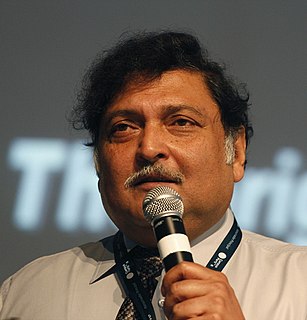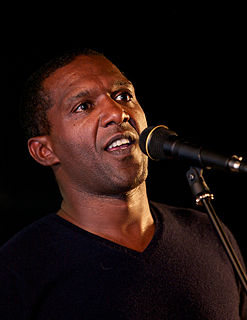Top 127 Cyberspace Quotes & Sayings - Page 2
Explore popular Cyberspace quotes.
Last updated on April 15, 2025.
In a modern digitalized world, it is possible to paralyze a country without attacking its defense forces: The country can be ruined by simply bringing its SCADA systems to a halt. To impoverish a country, one can erase its banking records. The most sophisticated military technology can be rendered irrelevant. In cyberspace, no country is an island.
I think that in an age where so much information is flying through cyberspace, we all have to be aware of the fact that some information which is sensitive, which does affect the security of individuals and relationships, deserves to be protected and we will continue to take necessary steps to do so.
One of the things that's attractive about cyberspace is that it can be construed as no threat. If you see it through the video game keyhole, the amusement keyhole, the entertainment keyhole, it is no threat. If you see it through the LSD keyhole, the consciousness-expanding keyhole, it's like electronic drugs: it is a threat.
The right to express one's views, practice one's faith, peacefully assemble with others to pursue political or social change - these are all rights to which all human beings are entitled, whether they choose to exercise them in a city square or an Internet chat room. And just as we have worked together since the last century to secure these rights in the material world, we must work together in this century to secure them in cyberspace.
The internet was supposed to liberate knowledge, but in fact it buried it, first under a vast sewer of ignorance, laziness, bigotry, superstition and filth and then beneath the cloak of political surveillance. Now...cyberspace exists exclusively to promote commerce, gossip and pornography. And of course to hunt down sedition. Only paper is safe. Books are the key. A book cannot be accessed from afar, you have to hold it, you have to read it.
Every time the diaphragm winks, the camera repeats the question that now travels through cyberspace and invades, as a modern virus, the memories of machines, men and women. The question that history sets forth. The question which forces us to define ourselves and whose answer makes us human: On which side are you?
Life in cyberspace is often conducted in primitive frontier conditions, but it is a life which, at its best, is more egalitarian than elitist and more decentralized than hierarchical. It serves individuals and communities, not mass audiences, and it is extraordinarily multi-faceted in the purposes to which it is put.
We need to bridge our sense of loneliness and disconnection with a sense of community and continuity even if we must manufacture it from our time on the Web and our use of calling cards to connect long distance. We must “log on” somewhere, and if it is only in cyberspace, that is still far better than nowhere at all. (264)
The future is unwritten. Cyberspace is the funhouse mirror of our own society, reflects our values and our faults, sometimes in terrifying exaggerations. It doesn't matter who you are today, if you don't show up in that mirror you are just not going to matter very much. Our kids have to show up in the mirror.
I am fascinated by all the new technology that creates places for us to meet in what is called cyberspace. I understand what it must have meant for the rebellions in the 19th century, especially in 1830 and 1848, when the mass circulated newspaper became so important for the spreading of information.
[Bill Clinton] was the man, as a matter of fact, who, in terms of the Communications Decency Act, which would have made the Internet, the whole concept of cyberspace, vulnerable to rampant censorship - he pushed that bill, and I know the man in the Justice Department whom he persuaded - the guy didn't want to lose his job - to write the bill.
We live in a digital world where all is available at the touch of a screen. Money has been simplified, changed subtly over time from tangible bills to numbers in cyberspace. Cash is no longer in a cloth bag; it's numbers on a screen. Numbers that can be manipulated and modified. If you run out of numbers, you can just buy some more, right?
Infrastructures of power always inhabit the surface of the earth somehow, or the skies above the earth. They're material things, always, and even though the metaphors we use to describe them are often immaterial - for example, we might describe the Internet as the Cloud or cyberspace - those metaphors are wildly misleading.

















































